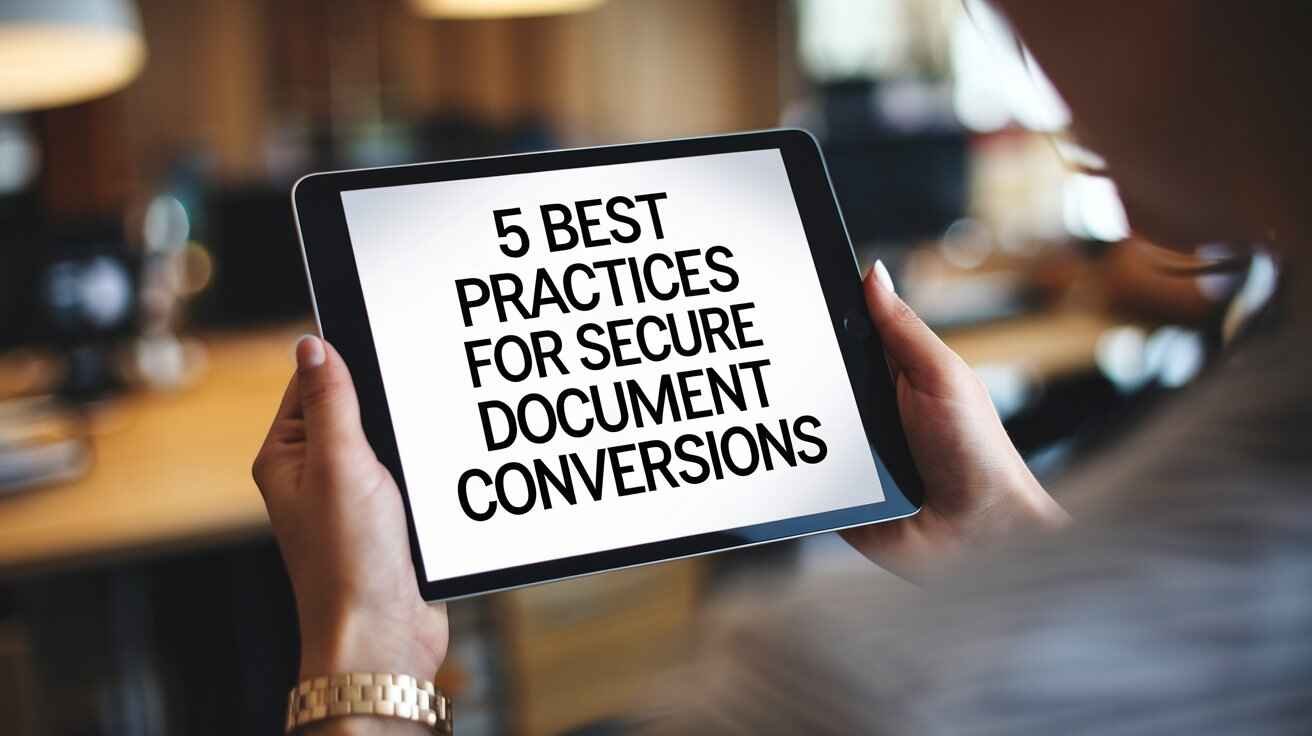In today’s digital landscape, document conversions are a routine task for businesses, whether converting PDFs to Word, Excel, or other formats. However, security concerns can arise during this process, especially when sensitive information is involved. Using a reliable PDF converter is essential to protect data and ensure that confidential documents remain secure during conversion. To mitigate risks and safeguard information, businesses should adopt best practices for secure document conversions.
Here are five best practices to ensure that your document conversions are both accurate and secure:
1. Use a Trusted PDF Converter
The first and most crucial step in secure document conversion is selecting a reliable PDF converter. Not all converters offer the same level of security, and some may expose your data to vulnerabilities. Always choose a well-known and trusted converter with robust security protocols. Look for tools that provide encryption, secure servers, and protection against unauthorized access. This ensures that any sensitive information in your documents remains confidential throughout the conversion process.
Many secure converters offer both online and offline options. If you are dealing with highly sensitive data, opt for an offline PDF converter to minimize the risk of information leaks over the Internet. Consider using a tool like Adobe Acrobat for the best results.
2. Enable Encryption for Sensitive Files
Encryption should be a priority when converting documents that contain sensitive or confidential information. Most high-quality PDF converters offer encryption features that allow you to secure files before, during, and after conversion. Encrypting your documents ensures that only authorized personnel can access the file content, even if it is intercepted during transmission.
Some converters also allow password protection for converted files. This additional layer of security is vital for businesses handling contracts, financial records, or legal documents. Make sure to enable these security features before proceeding with any conversions.
3. Avoid Free or Unverified Conversion Tools
While free tools may be tempting, they often lack the necessary security features to protect your data. Free online converters can pose a significant risk because they may store your documents on insecure servers, leaving sensitive data vulnerable to breaches. If you’re handling sensitive or personal information, it’s essential to avoid these unverified tools and instead invest in a reliable PDF converter.
When using online services, verify the converter’s privacy policies to ensure they don’t retain or misuse your files. For the highest level of security, choose a paid service or software that guarantees data privacy.
4. Use Offline Converters for Maximum Security
For businesses dealing with highly sensitive information, using an offline PDF converter is a best practice to minimize the data exposure risk. Offline converters allow you to convert documents directly on your device without an internet connection. This approach reduces the chances of sensitive data being intercepted during transmission, as the conversion process takes place entirely within your internal systems.
Offline tools are particularly useful for organizations that handle confidential client information, such as legal firms or financial institutions. By keeping the conversion process in-house, businesses can better control access to sensitive files and ensure the highest levels of security.
5. Delete Converted Files After Use
One often overlooked aspect of secure document conversion is the post-conversion process. After using a PDF converter to convert a document, it’s important to delete the original and converted files from the server or tool if they are no longer needed. Storing unnecessary copies of sensitive documents can increase the risk of unauthorized access.
If you are using an online converter, make sure the service has a policy for deleting files from its servers after conversion. If you are using an offline converter, ensure that your internal storage systems are secure and that all sensitive files are appropriately managed and disposed of after use.
Secure document conversions are critical in safeguarding sensitive business information. By following these best practices—using a trusted PDF converter, enabling encryption, avoiding unverified tools, using offline converters, and managing files post-conversion—you can protect your data throughout the conversion process. In a world where data breaches and cyber threats are becoming more common, these steps ensure your business remains secure and compliant while handling document conversions. Prioritizing security in this area can help you avoid potential risks and focus on your core business operations confidently.
Also Read: ImgSed: Fast Image Editing—Resize, Compress, Convert -2024






